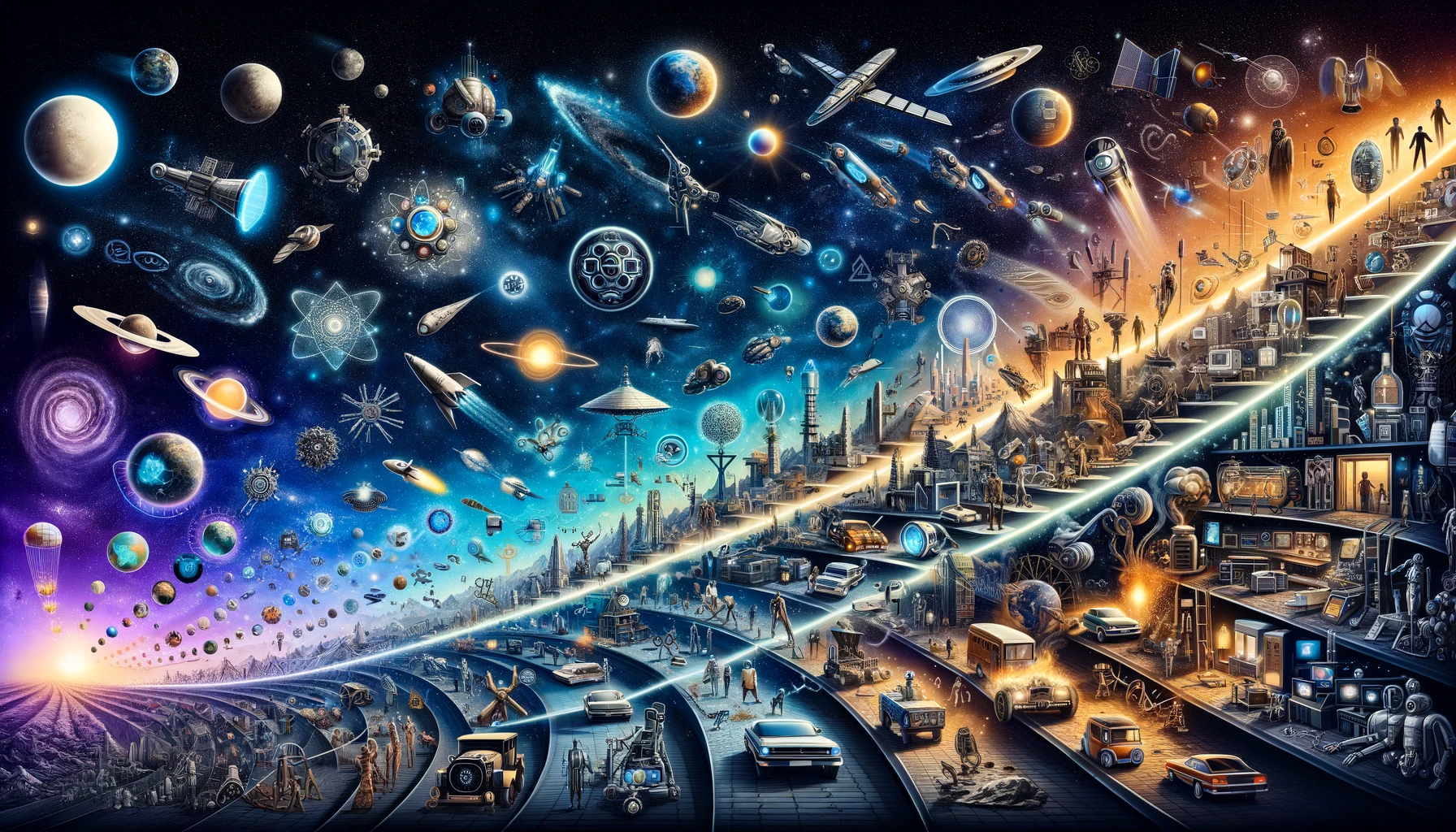Technology has evolved dramatically in the past 1000 years. From the invention of the printing press to the development of artificial intelligence, technology has transformed the way we live, work, and communicate.
The first 500 years
The first 500 years of the past 1000 saw relatively slow technological progress. However, there were still some important advances, such as the invention of the printing press in the 15th century. The printing press made it possible to mass-produce books and other printed materials, which led to a dramatic increase in literacy rates.
Other important technological developments during this period include:
- The invention of the compass (12th century)
- The invention of the telescope (17th century)
- The development of gunpowder (11th century)
- The invention of the printing press (15th century)
The second 500 years
The second 500 years of the past 1000 saw much faster technological progress. This was due in part to the Industrial Revolution, which began in the 18th century. The Industrial Revolution led to the development of new technologies such as the steam engine, the spinning jenny, and the power loom. These technologies made it possible to produce goods on a much larger scale than before.
Other important technological developments during this period include:
- The invention of the internal combustion engine (19th century)
- The invention of the light bulb (19th century)
- The invention of the telephone (19th century)
- The invention of the radio (20th century)
- The invention of the television (20th century)
- The invention of the computer (20th century)
The past 100 years
The past 100 years have seen the most rapid technological progress in human history. This is due to a number of factors, including the development of new materials, new manufacturing processes, and new information technologies.
Some of the most important technological developments of the past 100 years include:
- The development of the transistor (1947)
- The development of the integrated circuit (1958)
- The invention of the personal computer (1970s)
- The invention of the internet (1980s)
- The development of the World Wide Web (1990s)
- The development of smartphones (2000s)
The future of technology
It is difficult to predict what the future of technology holds, but it is clear that technology will continue to evolve at a rapid pace. Some of the most promising new technologies include artificial intelligence, robotics, and nanotechnology.
Artificial intelligence has the potential to revolutionize many industries, including healthcare, transportation, and manufacturing. Robotics is already being used in a variety of industries, and it is likely to become even more widespread in the future. Nanotechnology has the potential to develop new materials and devices with amazing properties.
How technology has changed our lives
Technology has changed our lives in many ways. It has made it easier to communicate with others, to access information, and to produce and consume goods. Technology has also led to new forms of entertainment and recreation.
Here are just a few examples of how technology has changed our lives:
- We can now communicate with people all over the world instantly using email, social media, and video conferencing.
- We can access information on almost any topic imaginable using the internet.
- We can produce goods and services more efficiently and effectively using technology.
- We can enjoy new forms of entertainment and recreation such as video games, streaming movies, and online music.
Challenges and opportunities
The rapid pace of technological change also brings with it some challenges. One challenge is that it can be difficult to keep up with the latest technologies. Another challenge is that technology can be used for harmful purposes, such as cybercrime and identity theft.
Despite these challenges, technology also presents many opportunities. For example, technology can be used to improve healthcare, education, and environmental sustainability. Technology can also be used to create new jobs and industries.
Conclusion
Technology has evolved dramatically in the past 1000 years. This evolution has transformed the way we live, work, and communicate. Technology has also presented us with new challenges and opportunities.
In the next 1000 years, we can expect to see even more dramatic advances in technology. It is impossible to predict exactly what the future holds, but it is clear that technology will continue to play an increasingly important role in our lives.
Here are some specific examples of how technology could evolve in the next 1000 years:
- We could see the development of new energy sources that are more efficient and sustainable.







Leave a Reply